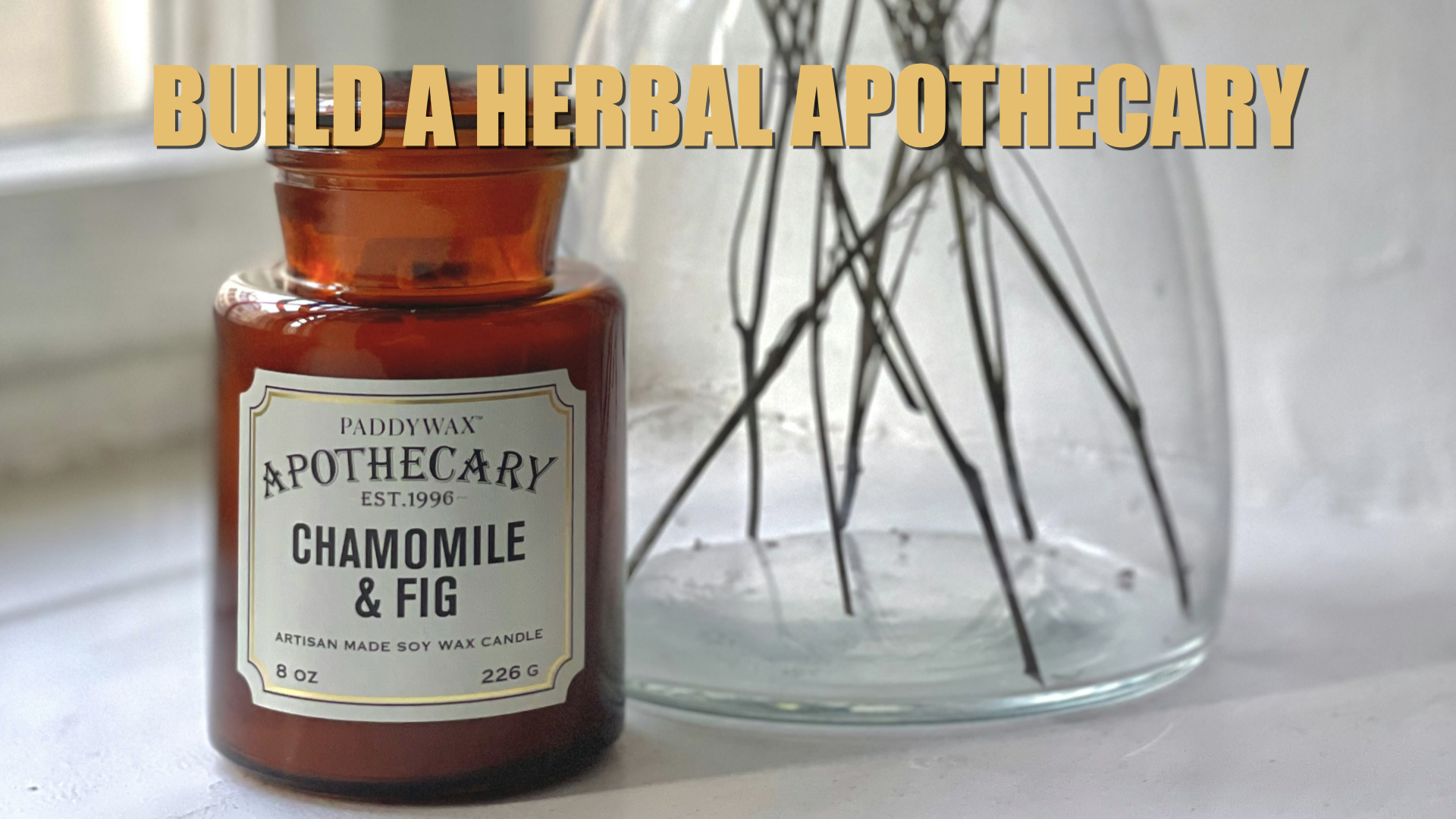Herbalism is an ancient practice that connects us to nature’s healing power, offering natural remedies for health and well-being. Throughout history, cultures around the world have relied on plants for medicine, nourishment, and spiritual practices. Whether you’re drawn to herbalism for medicinal, spiritual, or magical purposes, building a personal herbal toolkit is an essential first step. This guide will walk you through what an herbal toolkit is, why it’s important, and how to create one tailored to your needs.
In Europe, herbalism dates back thousands of years, with roots in Indo-European traditions. The Celts, Greeks, Germanic, Roman and Slavic peoples all had deep connections with plant medicine, using herbs for healing, protection, and ritual work.
Medieval European herbalism was shaped by both folk traditions and formalized studies. Monastic healers meticulously recorded herbal knowledge in texts like The Physica by Hildegard of Bingen and Bald’s Leechbook. Meanwhile, folk practitioners—wise women, cunning folk, and village healers—passed down herbal wisdom through generations. Many of these traditions persist today in modern herbal medicine and pagan practices, emphasizing the healing power of nature.
What is a Personal Herbal Toolkit?
A personal herbal toolkit is a collection of essential herbs, tools, and resources that allow you to explore herbal medicine and magic. It serves as your go-to supply for creating teas, tinctures, salves, and more. Think of it as a beginner’s herbal apothecary—a carefully curated set of items that supports your journey into herbalism.
This toolkit can be customized based on your focus. Some practitioners use herbs strictly for medicinal purposes, while others incorporate them into spiritual and magical practices. Regardless of your approach, having a well-prepared toolkit ensures you are ready to experiment, learn, and grow in your herbal practice.
A personal herbal toolkit is also about convenience and self-sufficiency. When you have a well-stocked and organized collection of herbs and tools, you can quickly respond to minor ailments, emotional needs, or spiritual workings without having to source ingredients at the last minute. Over time, your toolkit will evolve to reflect your personal preferences and growing knowledge, making it an indispensable companion on your herbal journey.
Additionally, creating your herbal toolkit fosters a deeper connection to the plants themselves. As you carefully select, store, and use your herbs, you begin to appreciate the nuances of each plant—its scent, texture, flavor, and energetic properties. This hands-on experience deepens your intuition and understanding of herbal medicine in ways that reading alone cannot provide.
While the contents of a personal herbal toolkit will vary from person to person, it should always be a practical, well-organized, and intentional collection. Whether you are focusing on natural remedies for common ailments, incorporating herbal magic into your spiritual practice, or simply enjoying the process of working with plants, your toolkit should reflect your goals and interests.
Now, let’s explore why having a personal herbal toolkit is so beneficial and how to put one together step by step.
Why You Need a Personal Herbal Toolkit
A well-prepared herbal toolkit allows you to:
- Learn hands-on about different herbs, their properties, and uses. Reading about herbs is one thing, but actively working with them allows you to develop a deeper understanding. Handling, smelling, and tasting herbs help you recognize their unique characteristics and how they interact with the body and spirit.
- Prepare natural remedies like teas, tinctures, and balms. Having a ready supply of herbs and tools allows you to craft your own wellness solutions. Instead of relying on store-bought products with artificial additives, you can create personalized remedies tailored to your health needs.
- Create herbal magic for spells, protection, or energy work. Many herbs carry metaphysical properties that can be harnessed in spiritual practices. Whether you’re crafting protection charms, love potions, or cleansing rituals, having herbs on hand enhances your magical work and strengthens your connection to nature.
- Stay organized with your herbs, tools, and resources in one place. A well-organized herbal toolkit saves time and ensures that you have everything you need in one accessible location. Proper storage also extends the longevity of your herbs and maintains their potency.
- Develop a deeper connection with nature and plant medicine. Herbalism fosters a mindful relationship with the natural world. As you work with plants, you begin to understand their cycles, energetics, and healing properties. This deep connection brings balance and harmony to both your personal life and spiritual practice.
Now, let’s break down the key components of a beginner’s personal herbal toolkit.
Essential Components of a Personal Herbal Toolkit
1. Essential Herbs for Beginners
Start with a selection of versatile herbs that have multiple uses, both medicinal and magical. Here are some beginner-friendly options. Get to know them one by one.
- Lavender – Calming, promotes sleep, relieves anxiety, great for protection and purification spells.
- Chamomile – Soothing, aids digestion, reduces stress, attracts prosperity and luck.
- Peppermint – Eases digestion, relieves headaches, enhances focus and clarity.
- Rosemary – Memory booster, anti-inflammatory, protects against negative energy.
- Sage – Cleansing, antibacterial, used for purification rituals.
- Mugwort – Enhances intuition and dreams, used for divination.
- Calendula – Healing for skin, anti-inflammatory, associated with sun energy and prosperity.
- Cinnamon – Stimulating, warms the body, attracts abundance and protection.
As you gain experience, you can expand your collection with more specialized herbs.
In addition to herbs, a well-rounded herbal toolkit includes various tools and materials to help you properly prepare and store your remedies. Here are some essential items to consider:
2. Herbal Preparation Tools
To make herbal remedies, you’ll need a few essential tools:
- Internet – obviously helps quicken research and communication with others
- Mortar and Pestle – Used for grinding dried herbs into powders.
- Clippers & pruning shears
- Pouches & vials
- Kitchen scale
- Jars & Containers – Airtight glass jars for storing dried herbs, oils, or tinctures.
- Pocket knife
- Cheesecloth or Muslin Bags – For straining herbal infusions and decoctions.
- Tea Strainer or Infuser – For making herbal teas and infusions.
- Small Bottles & Droppers – Used for tinctures, infused oils, and elixirs.
- Measuring Spoons & Cups – For accurate preparation of herbal remedies.
- Mixing Bowls & Stirring Utensils – For combining herbs and ingredients.
3. Carrier Oils, Bases & Solvents
Many herbal remedies require a base ingredient to extract and preserve the benefits of herbs:
- Olive oil – Great for infusions and salves.
- Coconut oil – Antimicrobial and moisturizing for skin applications.
- Sweet almond oil
- Beeswax – Used for making salves and balms.
- Alcohol (such as vodka or brandy) – Essential for creating tinctures.
- Apple cider vinegar (or white wine vinegar) – Used for herbal extracts and tonics.
- Honey – A natural preservative and carrier for syrups.
4. Books & Reference Materials
Knowledge is key to successful herbalism. Consider including a few trusted books in your toolkit:
- Plant identification terminology by James G. Harris & Melinda Woolf Harris
- What a plant knows – a field guide to the senses by Daniel Chamovitz
- Encyclopedia of Herbal Medicine (New Edition), Andrew Chevallier
- The Herbal Medicine-Maker’s Handbook by James Green
- The Green Witch by Arin Murphy-Hiscock
- Rosemary Gladstar’s Medicinal Herbs: A Beginner’s Guide by Rosemary Gladstar
- Cunningham’s Encyclopedia of Magical Herbs by Scott Cunningham
5. Keeping a journal to document your experiences, recipes, and observations is also highly recommended.
The invaluable herbal toolkit
A personal herbal toolkit is an invaluable resource for anyone beginning their journey into herbalism and natural medicine. It allows you to explore and experiment with plant-based healing while fostering a deeper connection with nature. Start small, stay curious, and enjoy the process of learning and growing with the plants!



